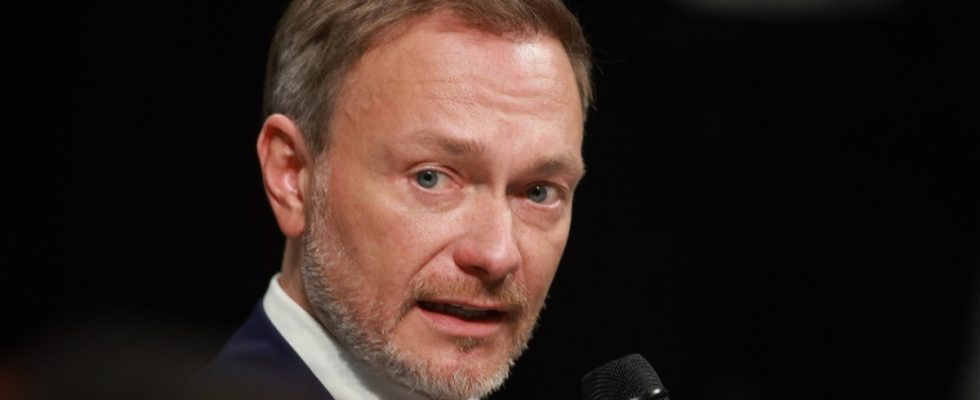If Christian Lindner is not busy with his positions in the government and party in the coming weeks, then as of this Monday he can make legitimate claims to an exciting third job: that of opposition leader. No responsible politician in the country has outlined the current weaknesses of the German economy as clearly as the Federal Finance Minister has now, not even the CDU/CSU faction leader Friedrich Merz, who is actually responsible. “Germany has become sluggish and needs a structural update,” says a four-page paper that Lindner’s ministry sent out at the beginning of the week. “Impulses that usher in a real economic turnaround” are therefore necessary.
Now Merz, who has been stripped of his job, could argue that FDP leader Lindner, as a key member of the federal cabinet, is being paid to change things instead of complaining about them. It is also true, however, that many of the weaknesses described in the paper did not arise when the traffic light coalition took office, but rather during the government of CDU Chancellor Angela Merkel. For example, so-called potential growth, i.e. the rate at which German economic output could increase in normal, crisis-free times, has been trending downward for many years. The reasons: lack of investment, falling work volume, declining productivity.
“After years at the top of the world as a business location, Germany is faced with the challenge of aligning its own business model to the changed framework conditions,” says the ministry analysis. “Spoiled by low interest rates, a consistently secure and affordable energy supply, sufficiently well-trained skilled workers from home and abroad and relatively high growth rates, politicians have made things too easy for themselves and have not provided any real impetus for growth and progress.”
The tax burden on companies is at least five percentage points too high
From Lindner’s point of view, one of the biggest problems is the high tax burden on companies. In fact, large corporations in this country pay almost 30 percent in taxes, and private companies sometimes pay even more. However, compared to the rest of the world, a tax rate of around 25 percent is considered competitive, according to the ministry. “Lower corporate taxes for both corporations and partnerships would provide a strong incentive for companies to invest in Germany and promote innovation. This would increase overall economic productivity development and thus also growth prospects,” says the paper.
Further problems include the rampant shortage of skilled workers, demographic pressure on social security systems, high energy prices, above-average unit labor costs, excessive bureaucracy and the poor quality of administrative procedures. In Lindner’s opinion, the last two points mentioned are not just an annoyance. Rather, it is true: “Bureaucracy costs money. Money that is no longer available for investments or research and development.”
Lindner suggests a whole range of measures to solve the problem
In order to strengthen the location, the Ministry of Finance proposes a whole package of measures in its analysis. Among other things, the tax burden for companies and citizens would have to be reduced, administrative procedures shortened and the availability of venture capital increased. Lindner also wants to attract more people to the labor market by allowing the state to provide more flexibility in working hours and retirement. It should also provide stronger incentives for the influx of foreign skilled workers and put more pressure on those receiving citizenship benefits to take a job. In order to reduce energy prices, network costs would also have to be reduced and technologies such as the controversial fracking and CO₂ storage in the sea and in the ground would have to be permitted. “If politicians show the courage to undertake structural reforms, all of this is possible within the framework of the debt brake,” says the paper.
What the traffic light has so far lacked the courage to do, however, is the attempt to put together a package coordinated between the Chancellery and the Ministry of Economics and Finance to strengthen the location. Instead, Vice Chancellor Robert Habeck (Greens) will first present the government’s annual economic report on Wednesday and will certainly also say something about his own reform considerations. These are not always the same as Lindner’s, to say the least. Only then should the ideas of all the specialist departments involved be linked step by step to form a common agenda. The actual opposition leader Merz still has a few points of attack.

